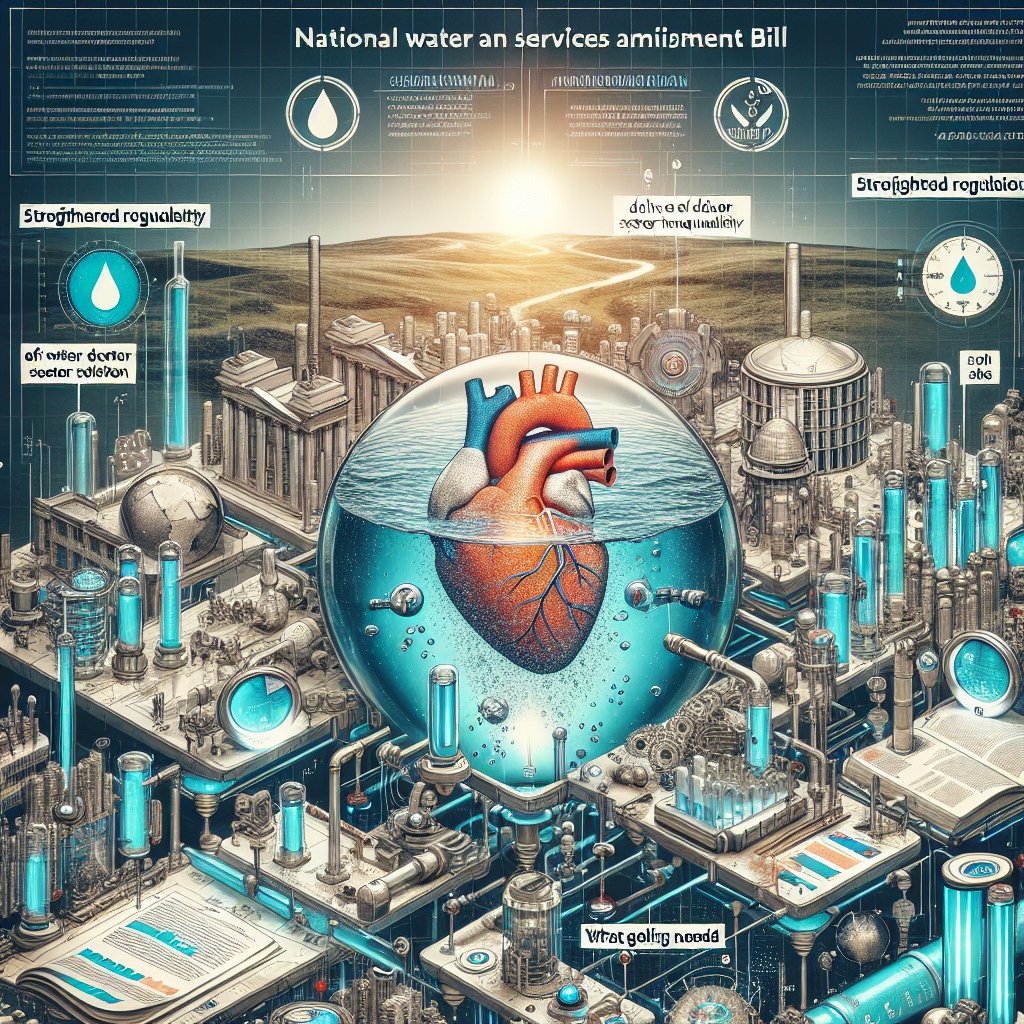Image created by AI
Proposed Water Bill in South Africa Overlooks Fundamental Service Delivery Challenges
In South Africa, a nation constitutionally bound to provide its citizens access to clean water, an ongoing struggle persists. The noble goal enshrined in Section 27(1)(b) of the South African Constitution is a distant reality for many as the government introduces the National Water and Services Amendment Bill. Though this piece of legislation spearheaded by the Department of Water and Sanitation (DWS) seeks to address glaring socioeconomic inequalities and regulatory weaknesses within the water sector, it may fall short of alleviating the country's acute water service delivery crisis.
The proposed amendments to the National Water Act (Act 36 of 1998) and the Water Services Act (Act 108 of 1997) signify an attempt to realign water governance structures. However, the focus on penalties over proactive measures to enhance water provision broadens the concern that this bill might impose stricter punitive parameters whilst sidestepping the critical need for improved access to water.
During a webinar hosted by the University of Johannesburg’s Centre for Social Development in Africa and WaterCAN, department officials and activits such as water activist Faeza Meyer convened to discuss the proposed amendments. A striking statistic brought to light by John Dini from the DWS revealed a racial disparities in water rights ownership—a mere 0.5% by black people compared to 98.6% by white people—an imbalance the bill seeks to correct.
Notably, the bill targets areas designated as "water towers", essential for water supply, by restricting certain activities like mining, forestry, and agriculture to safeguard these vulnerable catchment areas. Although this marks a step forward for environmental protection, the enforceability of such measures historically proved challenging, especially against the significant legacy of pollution from over 6,000 abandoned mines.
An innovative but contentious provision in the bill proposes a quota system to ensure a more equitable distribution of water resources. However, this system could stoke further discrimination, possibly infringing upon the equality provisions of the Constitution. This, coupled with pre-existing water allocation considerations within the National Water Act, could draw legal contests, jeopardizing the bill’s prospects.
The bill also introduces measures like "Apportionment of Liability" targeting directors and municipal managers with potential criminal and financial consequences for environmental violations. Despite the intention to fortify accountability frameworks, redundancy with existing legal provisions under the National Environmental Management Act complicates the judicial landscape and could dilute effective enforcement.
The Auditor-General’s reports illustrating poor financial management across South African municipalities, save for the Western Cape, and the direct link to inadequate service delivery cannot be overlooked. Current household water access data propel this underlying narrative—while some provinces have seen improved access, the severe inconsistencies and frequent water supply disruptions in provinces like Limpopo and Free State emphasize the imperative for timely government intervention.
More distressing is the decline in drinking water quality and wastewater treatment performance as reported by the Blue and No Drop Reports, and the Green Drop Progress Assessment Report, respectively. The degradation of water services is undeniably a "crisis", one that legislative measures alone cannot remedy.
Although attempts to redress disparities and water sector coloniality are commendable, addressing the urgent human rights issue of clean water provision remains paramount. The bill, while stringent in its regulations and penalties, skirts the essential systemic dysfunction in water service delivery.
Transparent governance, combating systemic corruption, and critical infrastructure investments must become the focal point of discourse and action, ensuring that the pursuit of regulatory oversight does not overshadow the immediate goal of universal water access.
Conclusively, the National Water and Services Amendment Bill must transcend its current state, evolving into a more comprehensive strategy that integrates robust enforcement, improved legislative harmony, and an unyielding commitment to water service delivery, so that the constitutional promise of clean water for all South Africans becomes a tangible reality.










